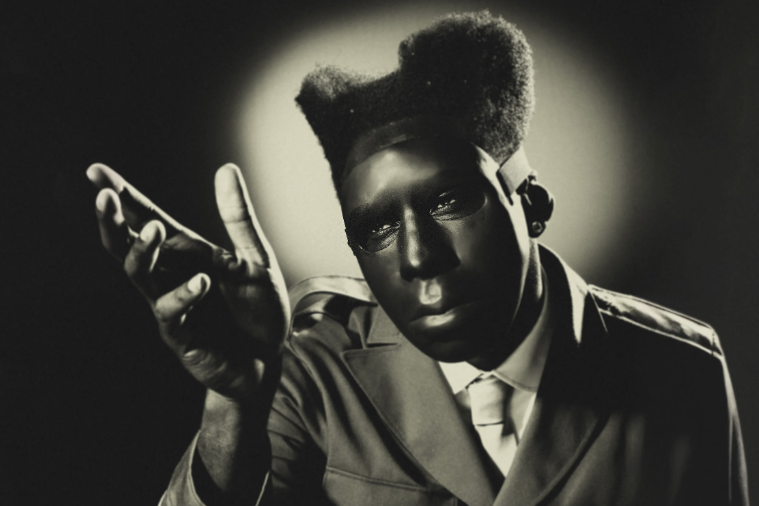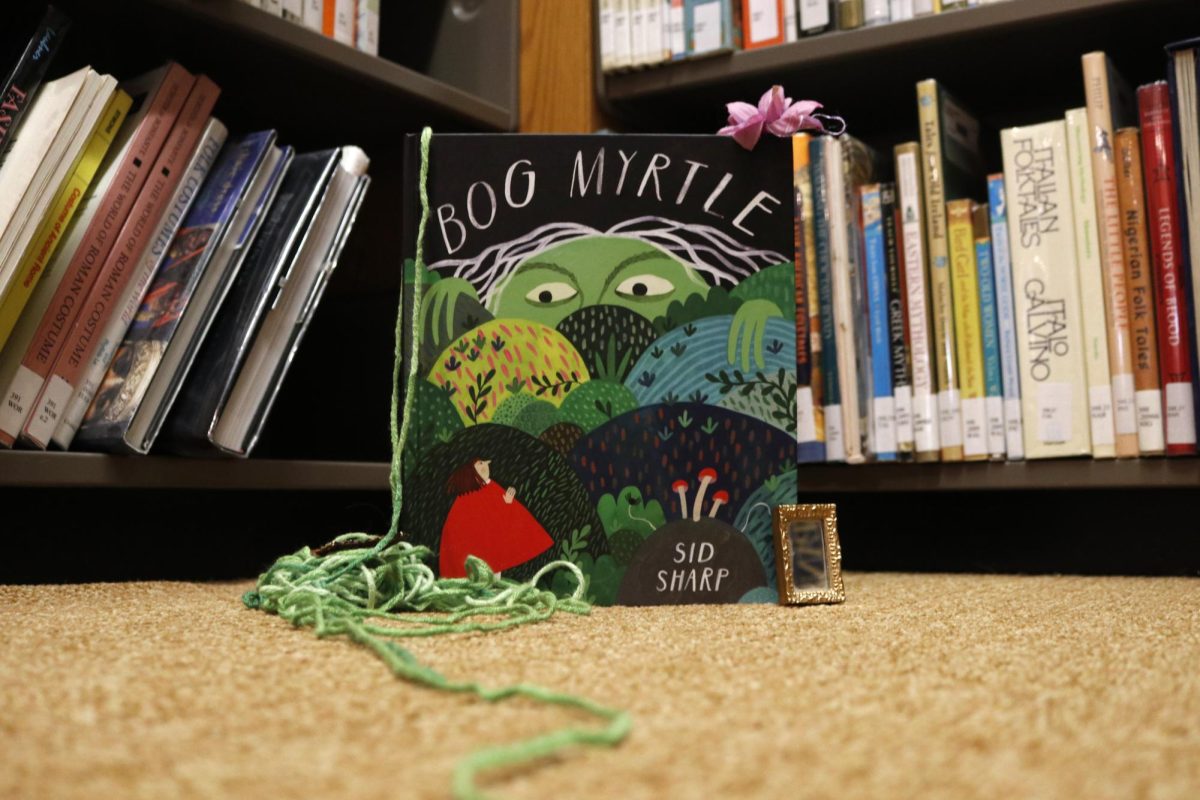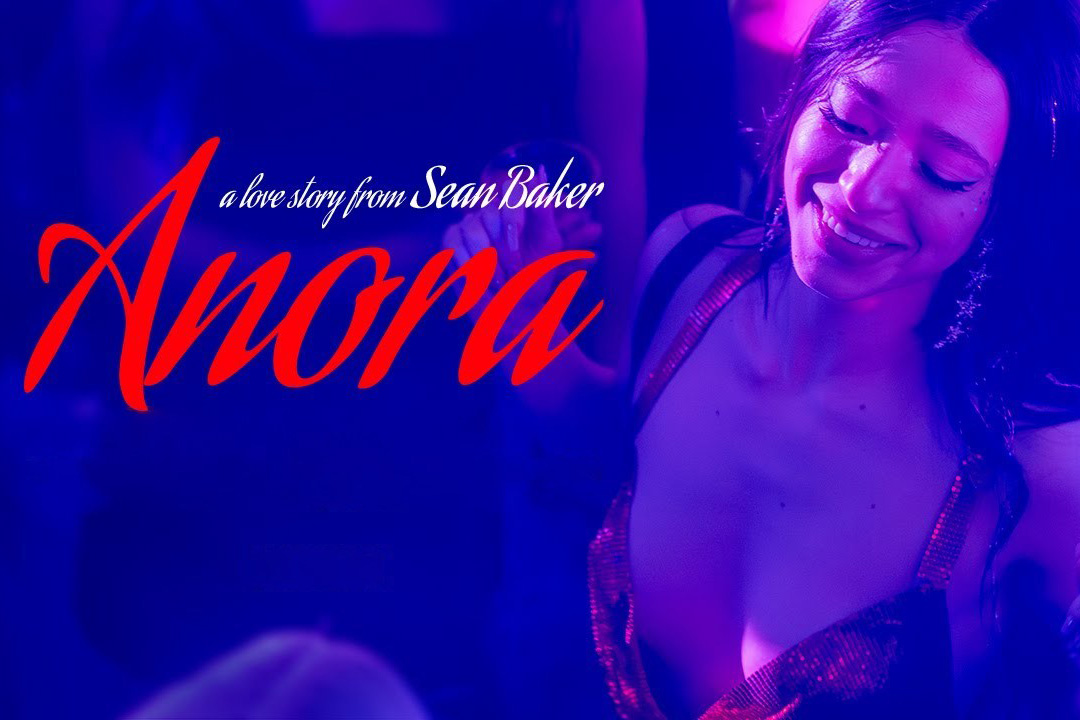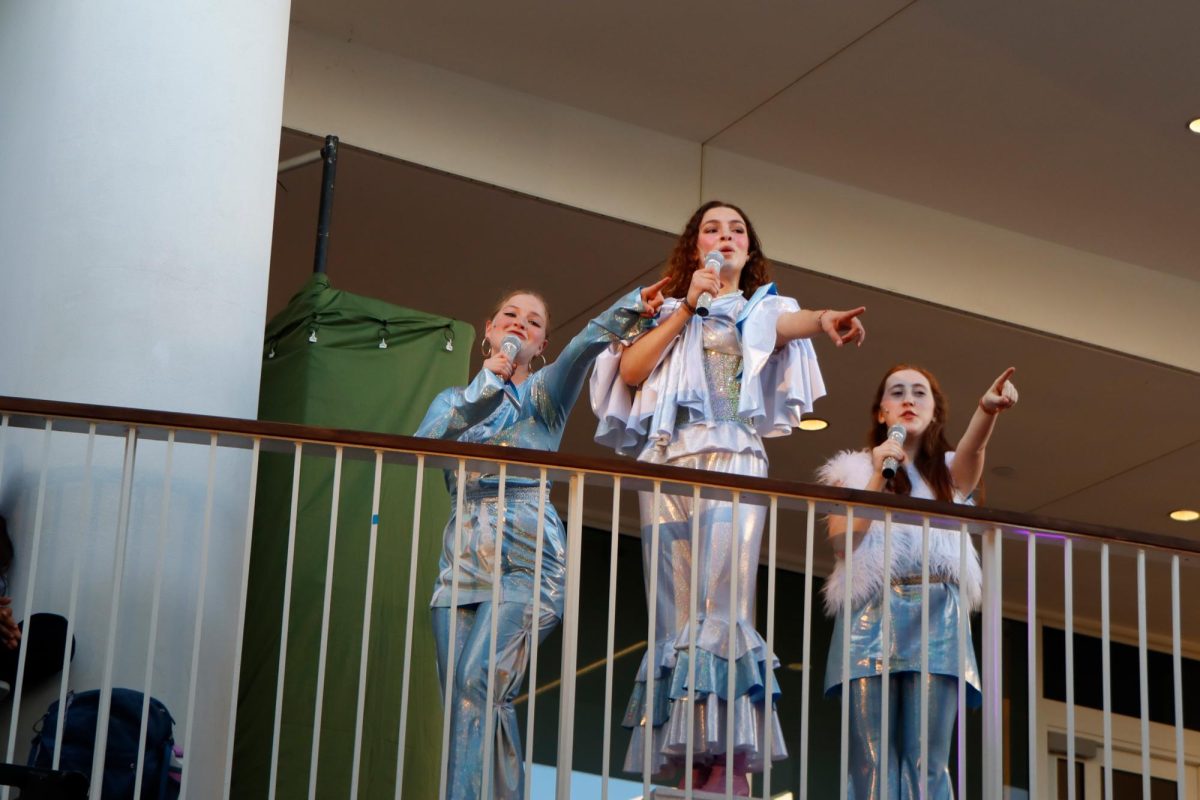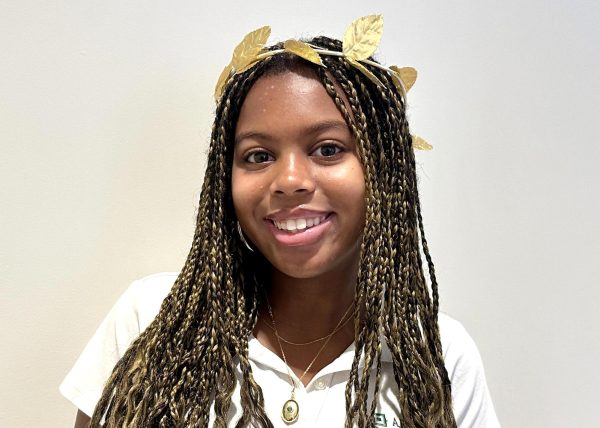Content warning: “Chromakopia” may not be appropriate for younger audiences, as it contains explicit language and references sexual themes.
Tyler, The Creator’s artistic evolution is nothing short of outstanding. From his early career as the controversial leader of Odd Future to his genre-defying solo projects like “Call Me if You Get Lost,” Tyler challenges conventions and reshapes his identity with everything he releases. Tyler took a new direction with his recent album, released Oct. 28, “Chromakopia” — one that’s defined by experimental production and guided by a maternal perspective.
“Chromakopia” is narrated by Tyler’s mother, which brings an intimate, grounded perspective to the album’s landscape. Using her voice, Tyler invites listeners into a personal journey and bridges the gap between his artistic expression and lived experiences.
The album begins with “St. Chroma,” where we hear Tyler’s mother telling him “the light is inside [him]” and not to “dim [his] light for anybody.” This song sets a nostalgic tone for the rest of the album, giving listeners more context into Tyler’s upbringing. Daniel Caesar’s euphonic feature on this song merges surprisingly well with Tyler’s turbulent vocals. “St. Chroma” was the perfect onset for this album.
Up next is “Rah Tah Tah,” a song that raises the energy. Though this track is two minutes and 45 seconds long, Tyler seemingly says nothing — which is exactly the point. The shallow and vague lyrics present him as a narcissistic, yet, clever artist. Tyler also included other powerful rap tracks on his album like “Sticky,” featuring Lil Wayne, GloRilla and Sexxy Red. These two songs were a highlight of “Chromakopia.”
Following this song is “Noid,” a track whose message directly contradicts “Rah Tah Tah.” Tyler steps into a vulnerable position and explains the challenges involved with being a well-known artist, saying he is “living between cameras and recorders” and that he wants “peace but can’t [afford it].” Listening to this track, I couldn’t help but feel the same paranoia Tyler describes.
In the next track, “Darling I,” Tyler experiments with a jazzy, catchy melody. Tyler outlines his struggle with staying loyal in his romantic relationships, singing “how can I get everything from one person?” and “I’m at the altar, but I’m still searching.” Although I appreciate Tyler’s raw storytelling, the romanticization of cheating on a romantic partner rubbed me the wrong way. This song also sounds similar to “Judge Judy,” where Tyler details a new relationship and promises to not “judge Judy.”
Building off of the theme of dysfunctional relationships, the next song, “Hey Jane,” describes an unexpected pregnancy and is told from the perspectives of the birth mother and father. This track, named after the abortion pill company Hey Jane, was particularly surprising, as Tyler has not included this theme in his past music.
Tyler is no stranger to weaving societal commentary into his music career. In 2020, Tyler condemned the National Academy of Recording Arts and Sciences after winning Best Rap Album for his 2019 album “Igor.” He criticized the fact that Black artists tend to only get nominated for certain categories.
“It sucks that whenever we — and I mean guys that look like me — do anything genre-bending, they always put it in a rap or urban category,” Tyler said. “I don’t like that ‘urban’ word — it’s just a politically correct way to say the n-word.”
“I Killed You” perfectly relates to this theme of the Black diaspora. In this song, Tyler explores intersectionality by likening hairstyles to the pressure Black people, particularly Black women, feel to conform. He sings, “The coils and the kinks became an issue / therefore I killed you.”
Another stand-out song is easily “Thought I was dead.” Tyler pokes fun at rappers who co-opt hip-hop culture, seemingly referencing his short-lived online dispute with Ian, where Tyler accused him of “mocking” hip-hop. Although some may see this as immature, social fray has always held a special place in hip-hop.
Along with social commentary, whimsy was also present on “Chromakopia.” “Balloon” featuring Doechii is a frivolous, enjoyable listen. Tyler not-so-subtly comments on his success, rapping “house shoppin’, I’m a pig, I love coppin’,” and “I’ve been flying high, wheres the pavement / enough of me, can I get an amen.” Doechii’s bold verse stands out in this song and reminds the audience of her underrated talent.
“Like him” is one of the most moving tracks on this album. Tyler outlines his trauma associated with having an absent father, saying “I’m chasing a ghost, I don’t know who he is” and asking his mother “So, do I look like him?” This song is striking because of the heavy subject matter, Lola Young’s melodic vocals and a revelation Tyler has. Tyler’s mother reveals in the song’s outro that his father always wanted to be in his life, saying “It was my fault / he always wanted to be there for you / I’m sorry, I was young.”
“Chromakopia” outlines the good, the bad and the fun in one neat package. Tyler continues to be his authentic self, maintaining thematic depth within each track. I would’ve loved “Chromakopia” more if Frank Ocean had gotten a feature, considering the fan speculation that he may end his eight-year-long music hiatus to join Tyler on this album. Nonetheless, it’s safe to say that “Chromakopia” is a modern-day classic.
-
Lyrics
-
Sound Quality
-
Enjoyment
-
Impact
Summary
“Chromakopia” by Tyler the Creator is easily one of my new favorite albums. Released Oct. 28, Chromakopia outlines Tyler’s fears, aspirations and delusions.



